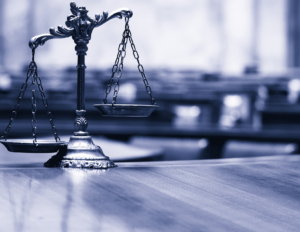Imagine a world where contracts execute themselves, fraud is nearly impossible, and public records are immune from tampering. That’s not sci-fi, it’s blockchain. At its core, blockchain is a digital ledger where transactions are written in “permanent ink,” visible to all, and nearly impossible to alter. It powers everything from cryptocurrencies to smart contracts, but its implications stretch far beyond.
Why Blockchain Matters for Lawyers and Clients Alike
Blockchain’s real promise lies in trustless automation. Transactions, whether financial or contractual, can be encoded into “smart contracts” that self-execute when conditions are met. This could eliminate the need for intermediaries in deals, reduce litigation risk, and increase efficiency in areas like real estate, licensing, and intellectual property.
Legal Challenges in a Decentralized World
This kind of innovation brings legal complexity. As Blockchain-based tools gain traction, the law is playing catch-up. Some of the most pressing questions include:
- Jurisdiction: Where do disputes get resolved when transactions happen across borders and blockchains?
- Smart Contract Enforcement: Are smart contracts enforceable like traditional ones?
- Data Privacy: How do blockchain’s permanent records comply with evolving privacy laws (i.e., GDPR or state statutes)?
- Regulatory Uncertainty: In the U.S., blockchain innovation often gets stuck in legal gray zones, while other countries such as Estonia, Switzerland, and the UAE have advanced clearer frameworks to support blockchain adoption.
The Role of AI and Real-World Use Cases
Artificial intelligence is now accelerating blockchain’s reach. AI systems can analyze data on the blockchain to automatically trigger smart contracts, detect fraud in real-time, or even manage decentralized autonomous organizations (DAOs). Together, AI and blockchain are laying the groundwork for more intelligent, autonomous systems—raising novel questions about liability, intent, and authorship in digital transactions.
Various industries are tapping into and using blockchain today. These include:
- Supply Chain & Logistics: Walmart and IBM use blockchain to trace food from farm to shelf, ensuring safety and accountability.
- Healthcare: Providers are piloting blockchain to securely store patient records and streamline data sharing across systems.
- Financial Services: JPMorgan Chase, Goldman Sachs, and Fidelity are investing heavily in blockchain for settlement systems and digital asset management.
- Government Services: Estonia’s e-residency and digital ID programs run on blockchain architecture.
- Entertainment and IP: Platforms like OpenSea and Sound.xyz are giving artists direct control over royalties through blockchain-based ownership.
- Real Estate: Countries like Sweden and companies like Propy are using blockchain to digitize property records, execute smart contract closings, and reduce fraud in title transfers by offering faster, more secure real estate transactions using blockchain.
The Bottom Line
Blockchain isn’t just a cool new tech, it’s a challenge to the legal status quo. Whether you’re a business owner, developer, or legal professional, now is the time to start thinking critically about how decentralized tools affect your rights, responsibilities, and regulatory obligations. The next wave of legal practice won’t just involve adapting to change, it will require proactively shaping it. Open your doors to this revolutionary technology and how it can impact—and work with—your day-to-day. Legal innovation is no longer optional. Are you ready?




